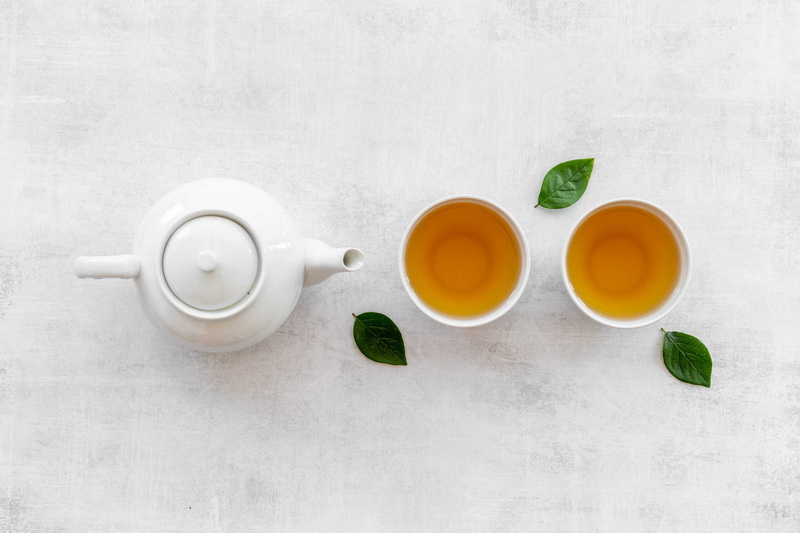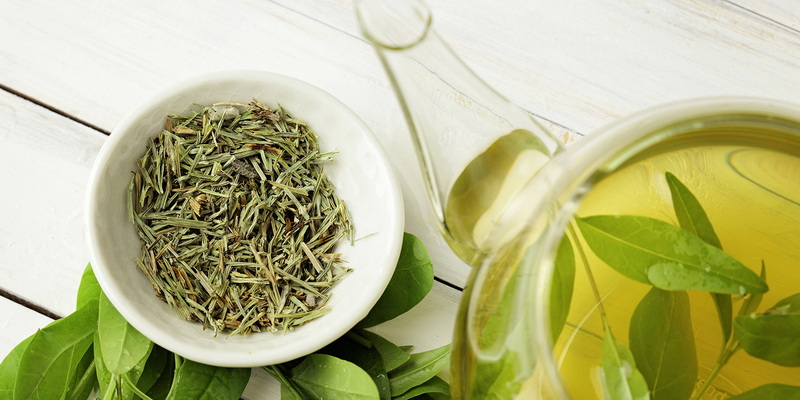Content Menu
● Introduction to Green Tea and Oral Health
>> Benefits of Green Tea for Oral Health
>> Using Green Tea After Tooth Extraction
>>> Green Tea Mouthwash
>>> Green Tea Gauze
>> How Green Tea Works
>> Additional Oral Health Benefits
>> Precautions and Considerations
>> Integration with Conventional Dental Care
● Expanded Benefits and Applications
>> Green Tea in Preventive Dentistry
>> Green Tea and Periodontal Health
>> Green Tea and Dental Implants
>> Green Tea and Oral Cancer Prevention
>> Green Tea and Bad Breath
>> Green Tea and Dental Hygiene Routine
>> Green Tea and Nutritional Benefits
>> Green Tea and Lifestyle Choices
>> Green Tea and Cultural Significance
>> Green Tea and Future Research
>> Green Tea and Professional Dental Advice
● Conclusion
● Frequently Asked Questions
>> 1. Can Green Tea Help Reduce Tooth Sensitivity?
>> 2. How Does Green Tea Aid in Post-Extraction Healing?
>> 3. Is Green Tea Safe for Daily Consumption?
>> 4. Can Green Tea Replace Conventional Painkillers After Tooth Extraction?
>> 5. How Can I Use Green Tea for Oral Health?
● Citations:
Green tea, known for its numerous health benefits, has been gaining attention for its potential role in oral health, particularly in managing post-extraction soreness and promoting healing. This article delves into the evidence supporting green tea's effectiveness in aiding recovery after tooth extraction, its benefits for oral health, and how it can be used as a complementary remedy.

Introduction to Green Tea and Oral Health
Green tea, derived from the Camellia sinensis plant, is rich in antioxidants and polyphenols, which contribute to its health benefits. Unlike black tea, green tea is processed to prevent oxidation, preserving more of its natural antioxidants, such as epigallocatechin-3-gallate (EGCG). This processing method allows green tea to retain a higher concentration of these beneficial compounds compared to other types of tea.
Benefits of Green Tea for Oral Health
1. Antimicrobial Properties: Green tea has been shown to inhibit the growth of bacteria like Staphylococcus aureus and Pseudomonas aeruginosa, reducing the risk of infections. This is particularly beneficial in preventing post-extraction infections, which can complicate the healing process.
2. Anti-inflammatory Effects: The anti-inflammatory properties of green tea can help reduce swelling and pain after dental procedures. By minimizing inflammation, green tea aids in faster recovery and reduces discomfort.
3. Hemostatic Effects: Green tea extract has been used to control bleeding after tooth extraction due to its astringent properties. This can be especially helpful in managing post-operative bleeding, which is a common concern following dental surgeries.
4. Tooth Sensitivity Reduction: Studies suggest that green tea can help reduce tooth sensitivity by blocking dentin tubules. This makes it a potential natural remedy for individuals experiencing sensitivity.
5. Antioxidant Activity: Green tea's high antioxidant content helps protect against oxidative stress, which can contribute to oral health issues like periodontal disease.
Using Green Tea After Tooth Extraction
Green Tea Mouthwash
A study involving 43 subjects undergoing wisdom teeth surgery found that using a green tea mouthwash significantly reduced post-operative pain and the need for painkillers compared to a placebo. The mouthwash was made by mixing 5 grams of green tea powder with 100 ml of distilled water and adding mint flavor. Participants were instructed to rinse their mouths with the solution for 30 seconds, twice daily, for three days post-surgery.
Green Tea Gauze
Research has shown that biting on green tea-impregnated gauze can effectively control bleeding and reduce pain after tooth extraction. This method leverages the hemostatic and analgesic properties of green tea. The gauze is typically soaked in a green tea solution before being applied to the extraction site.
How Green Tea Works
Green tea's effectiveness in oral health can be attributed to its rich content of polyphenols, particularly EGCG. These compounds have antioxidant, anti-inflammatory, and antimicrobial properties, which contribute to their therapeutic effects. The mechanism involves modulating inflammatory pathways and inhibiting bacterial growth, thereby promoting a healthy oral environment.
Additional Oral Health Benefits
- Cavity Prevention: Green tea can prevent biofilm buildup, reducing the risk of cavities. By inhibiting the formation of dental plaque, it aids in maintaining clean teeth surfaces.
- Gingival Health: It aids in maintaining healthy gums by reducing inflammation and bacterial growth. This can help prevent conditions like gingivitis and periodontitis.
- Halitosis Reduction: Green tea's antimicrobial properties can help reduce bad breath by eliminating bacteria that cause odor.
Precautions and Considerations
While green tea is generally safe, excessive consumption may lead to caffeine intake and interact with certain medications. It's essential to consult a healthcare provider before using green tea as a treatment, especially if you have any underlying health conditions or are taking medications.
Integration with Conventional Dental Care
Green tea should be used in conjunction with professional dental advice and care. While it offers several benefits, it is not a replacement for standard post-operative care instructions provided by dentists. Following dental procedures, patients should adhere to their dentist's recommendations while incorporating green tea as a complementary remedy.

Expanded Benefits and Applications
Green Tea in Preventive Dentistry
Green tea's antimicrobial properties make it an effective tool in preventive dentistry. By reducing bacterial growth, it can help prevent conditions like gingivitis and periodontitis. Regular consumption of green tea may also contribute to a reduced risk of dental caries by inhibiting the formation of dental plaque.
Green Tea and Periodontal Health
Periodontal diseases, such as periodontitis, involve inflammation of the gums and supporting structures of the teeth. Green tea's anti-inflammatory properties can help reduce this inflammation, promoting healthier gums and supporting structures. This can be particularly beneficial for individuals at risk of periodontal disease.
Green Tea and Dental Implants
For individuals undergoing dental implant procedures, green tea may offer additional benefits. Its anti-inflammatory properties can help reduce swelling and promote healing around the implant site, potentially improving the success rate of dental implants.
Green Tea and Oral Cancer Prevention
Some studies suggest that green tea may have a role in preventing oral cancer due to its antioxidant properties. While more research is needed, incorporating green tea into your diet may contribute to a reduced risk of oral cancer.
Green Tea and Bad Breath
Green tea's antimicrobial properties can help eliminate bacteria that cause bad breath. Regular consumption or use as a mouthwash may help reduce halitosis, contributing to fresher breath and improved oral hygiene.
Green Tea and Dental Hygiene Routine
Incorporating green tea into your dental hygiene routine can be simple. You can use it as a mouthwash after brushing and flossing, or drink it regularly to reap its systemic benefits. This can enhance your oral health regimen and provide additional protection against common dental issues.
Green Tea and Nutritional Benefits
Green tea is not only beneficial for oral health but also provides nutritional benefits. It is rich in vitamins and minerals, such as vitamin C and potassium, which contribute to overall health and well-being.
Green Tea and Lifestyle Choices
Incorporating green tea into your lifestyle can be part of a broader approach to health. Combining it with a balanced diet and regular exercise can enhance its benefits and contribute to a healthier lifestyle.
Green Tea and Cultural Significance
Green tea has cultural significance in many societies, particularly in Asia, where it is an integral part of traditional medicine and daily life. Its use in oral health reflects a broader cultural appreciation for natural remedies and holistic health practices.
Green Tea and Future Research
Future research should focus on the long-term effects of green tea on oral health and its potential applications in dentistry. This could involve studies on its efficacy in preventing dental diseases and promoting healing after dental procedures.
Green Tea and Professional Dental Advice
While green tea offers several benefits, it is crucial to consult with a dentist before using it as a treatment. Professional advice ensures that green tea is used safely and effectively, complementing rather than replacing conventional dental care.
Conclusion
Green tea offers several benefits for oral health, including reducing post-extraction soreness, controlling bleeding, and aiding in periodontal health. Its antimicrobial and anti-inflammatory properties make it a valuable complementary remedy for managing oral health issues. However, it should be used in conjunction with professional dental advice and care.

Frequently Asked Questions
1. Can Green Tea Help Reduce Tooth Sensitivity?
Green tea, particularly its component EGCG, has been shown to reduce tooth sensitivity by blocking dentin tubules, providing relief for sensitive teeth. This makes it a potential natural remedy for individuals experiencing sensitivity.
2. How Does Green Tea Aid in Post-Extraction Healing?
Green tea aids in post-extraction healing by reducing bleeding, pain, and inflammation. Its antimicrobial properties also help prevent infections, which can complicate the healing process.
3. Is Green Tea Safe for Daily Consumption?
Yes, green tea is generally safe for daily consumption. However, it contains caffeine, so excessive intake should be avoided, especially by those sensitive to caffeine or with certain health conditions.
4. Can Green Tea Replace Conventional Painkillers After Tooth Extraction?
While green tea can help reduce pain and inflammation, it should not replace conventional painkillers entirely. It can be used as a complementary remedy under the guidance of a healthcare provider.
5. How Can I Use Green Tea for Oral Health?
You can use green tea as a mouthwash by steeping green tea powder in water, or apply green tea-impregnated gauze to extraction sites. Drinking green tea regularly may also contribute to overall oral health benefits.
Citations:
[1] https://dimensionsofdentalhygiene.com/evidence-based-benefits-of-green-tea/
[2] https://www.nutritionaloutlook.com/view/green-tea-wisdom-tooth-surgery
[3] https://pmc.ncbi.nlm.nih.gov/articles/PMC10028581/
[4] https://www.texarkanadentistry.com/blog/dentist/
[5] https://www.colgate.com/en-us/oral-health/wisdom-teeth/tea-bags-wisdom-teeth-remedy
[6] https://sunlakesdentistry.com/is-green-tea-good-for-teeth-and-can-green-tea-help-with-tooth-pain/
[7] https://creating-smiles.com/can-i-drink-tea-after-tooth-extraction/
[8] https://www.medicalnewstoday.com/articles/318822

 English
English 




























